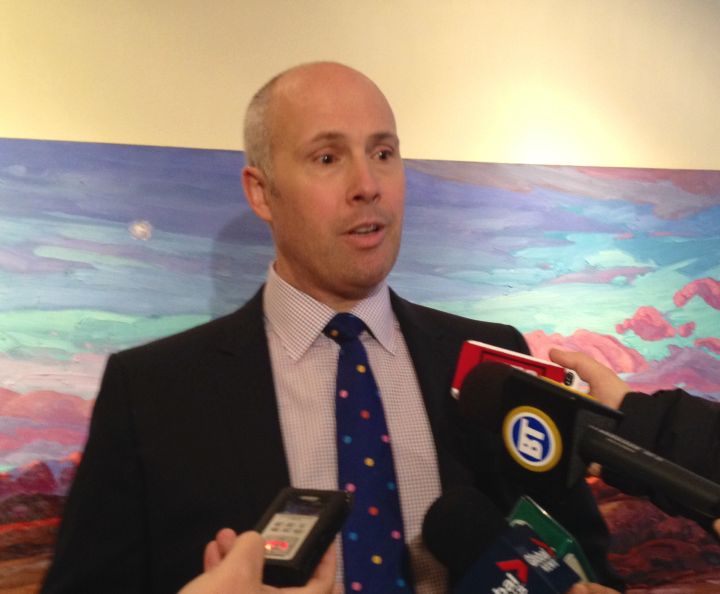EDMONTON – Alberta’s NDP government is facing accusations the broad guidelines for its multibillion-dollar proposed carbon tax will change it from a climate-fighting levy into an all-purpose slush fund.

The province expects to collect about $3 billion a year from the tax as of 2018, with hikes in power and electricity bills and the cost of gas at the pump.
READ MORE: Alberta climate change plan – ‘War on coal’, ‘unfair hit’ or positive step forward?
The government says the tax is revenue neutral, given it will be used in Alberta for incentives, rebates, green infrastructure and even into general revenues to pay down debt.
The carbon tax is one of the pillars of Alberta’s new climate change strategy, unveiled Sunday by Premier Rachel Notley and Environment Minister Shannon Phillips.
READ MORE: How will Alberta’s carbon tax impact consumers?
Watch below: Former Alberta energy minister Rick Orman of Canadian Strategy Group shares his thoughts about the province’s new climate change strategy on Global Calgary’s Morning News Nov. 24.
Alberta Party Leader Greg Clark said he’s broadly in favour of the strategy, but he wants to know how the billions will be spent and allocated.
Wildrose Leader Brian Jean said Notley should call it what it is — a straight-up tax.
“Not only is the NDP hurting our economy, but now they’ve decided to change the meaning of words,” Jean told the house during question period Monday.
“Albertans will pay $3 billion in new taxes … the government will spend the new money (and) no one will have any of their existing taxes go down.
“Can anyone over there (on the NDP side) explain how this is revenue neutral?” said Jean.
READ MORE: It’s not time for a carbon tax in Alberta, says Wildrose
Clark agreed.
“When you’re talking about spending it on general government infrastructure, that is not revenue neutral. The government is misleading Albertans,” said Clark.
“We’re worried that that $3 billion will turn into a slush fund.”
Watch below: Global’s Gord Gillies takes you through the numbers of Alberta’s new carbon tax.
The plan will see the province move to cap oilsands emissions, phase out coal-fired electricity plants, and move to more enviro-friendly fuel sources over the next 15 years.
The carbon tax will help pay for the transition.
READ MORE: Reaction to Alberta’s ‘ambitious’ climate change plan
Phillips said the government will develop programs to help businesses and families make the shift to Alberta’s new economy.
“We have pledged that we will ensure that this orderly transition is fair for workers, fair for communities, fair for consumers, (and) fair for the companies,” Phillips told reporters.
Under the carbon tax, fuel prices are to rise 4.7 cents a litre by 2017 and to 7.1 cents a litre by 2018. Household bills will rise by $320 a year for the average family in 2017 and hit $470 by 2018.
Watch below: With the carbon tax costing Albertans about $3 billion a year according to the Wildrose, the impacts will be felt close to home. Global’s Vinesh Pratap has the details.
The government has promised rebates to about 60 per cent of Albertans, those in the middle to lower-income bracket.
“They (the government) should have said, ‘We’re doing a social program,’ said Progressive Conservative Leader Ric McIver.
“But they didn’t say that. They said, ‘We’re doing a climate change program,’ and then they forgot immediately about climate change after they got finished counting the dollars.”

Comments